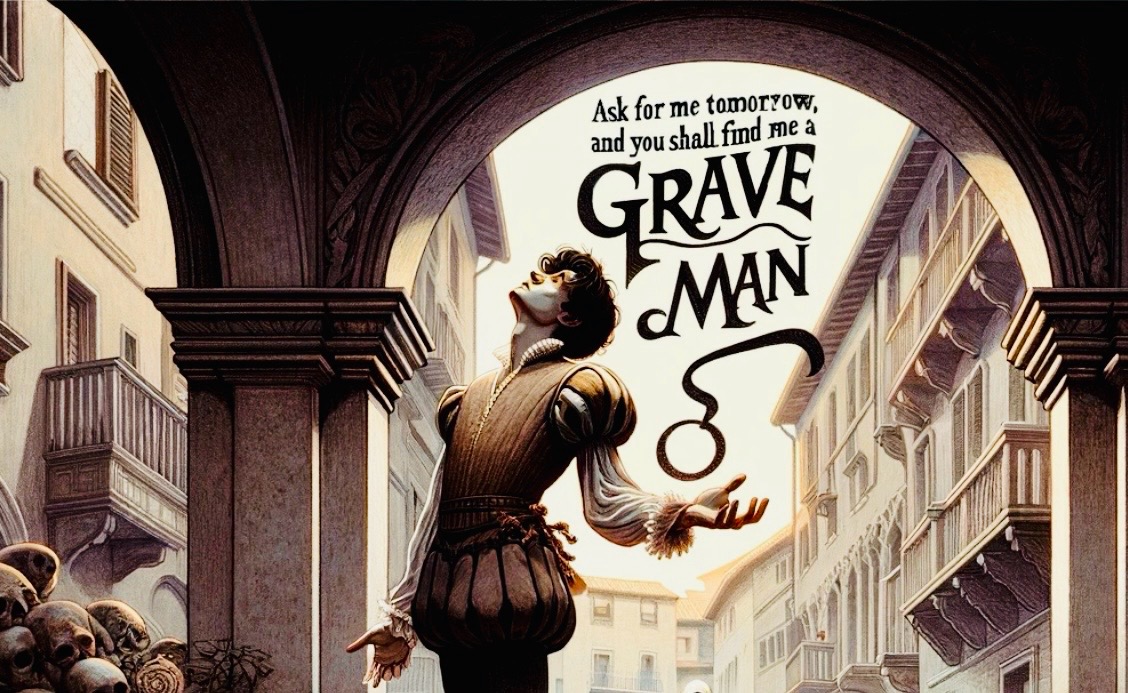A double entendre is a figure of speech where a word or phrase has two meanings: one is obvious and literal, while the other is more subtle, often humorous or risqué.

Dual Meanings, Twice the Fun
The charm of a double entendre lies in its dual interpretation. One meaning is generally accepted as the surface value, suitable for any audience. The second meaning, however, is where the fun begins, often revealing a hidden, suggestive layer that gives the phrase its wit.
Why We Love Them
Double entendres are popular because they engage the listener or reader’s mind more actively. They require a bit of mental gymnastics to unravel the hidden meaning, making the moment of realization all the more satisfying. They’re a staple in comedy, literature, and everyday banter for this reason, allowing for playful exchanges that can be both sophisticated and cheeky.
Crafting Your Own Double Entendre
Creating a double entendre involves a keen sense of language and context. Start with a common phrase or word and think about how it can be interpreted in a different, ideally humorous or provocative, way. Timing and delivery are crucial, especially in conversation, to ensure both meanings are understood, with one perhaps taking a moment longer to dawn on your audience.
Examples of Double Entendres in Literature
Double entendres are everywhere once you start looking for them. From Shakespeare’s witty plays to modern sitcoms and movies, writers have long embraced this technique to add layers to their work.
Example 1:
The Handmaid’s Tale
by Margaret Atwood
A well-known example of a double entendre in Canadian literature comes from Margaret Atwood’s “The Handmaid’s Tale.” In this dystopian novel, Atwood frequently employs double entendres to underline the themes of power, subjugation, and resistance. A notable instance is the protagonist’s play on the word “pen,” which on the surface refers to a writing instrument, banned for women in the novel’s society. However, it also signifies both the penitentiary system that confines them and the pen as a symbol of male power and the phallus. This example underscores the restrictions placed on women in the novel, highlighting their lack of freedom and autonomy, while also subtly suggesting the power of writing and voice as tools of resistance and liberation.
Example 2:
Romeo and Juliet
by William Shakespeare
A classic example of a double entendre in literature comes from William Shakespeare’s work, which is rich with wordplay and layered meanings. In “Romeo and Juliet,” Mercutio’s dying words to Romeo offer a famous double entendre: “Ask for me tomorrow, and you shall find me a grave man.” Here, Mercutio plays on the word “grave.” On one level, “grave” means serious, reflecting his usual playful and witty character, even in the face of death. On another, more literal level, “grave” refers to his impending death and burial. This line encapsulates Shakespeare’s skillful use of language to provide depth, humour, and poignancy to his characters’ dialogue.
Navigating the Double Edges
While double entendres can add sparkle to your writing, it’s important to use them judiciously. Context is everything. To avoid causing offence, it’s crucial to ensure your audience is receptive to the double entendre.
Meanwhile, at Dreamers…
Dreamers Writing Prompt Generator

Experience the power of simplicity with our unique writing prompt generator. Designed for writers who crave spontaneity and surprise, our tool delivers one meticulously crafted prompt at a time.
Top 25 Most Popular Manga Right Now

If you’re searching for the most popular Manga right now, this top 25 list is the ideal starting point, whether a beginner or enthusiast.